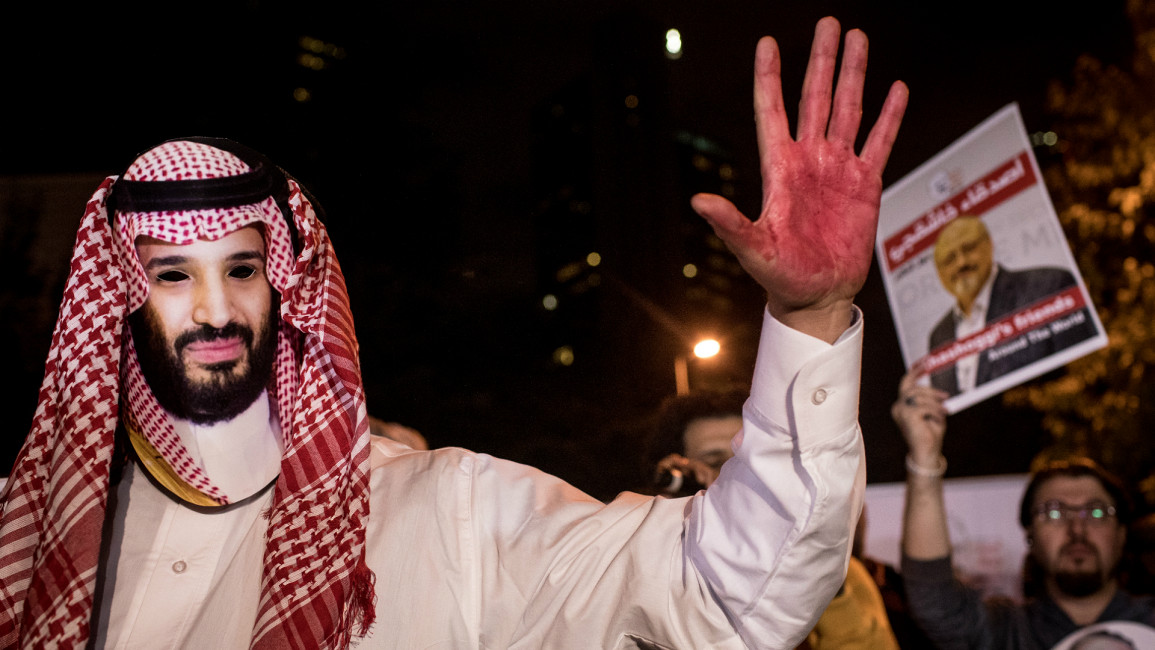Amnesty calls on G20 leaders to address Saudi Arabia's 'dire' human rights record
G20 leaders should pressure the kingdom to end human rights violations amid a new wave of arbitrary arrests and silencing of dissent, Amnesty said in a statement.
Member states who are engaged in arms trade with Saudi Arabia must also reconsider their position and the extent to which their continued profitability makes them complicit in human rights violations committed by the kingdom in its war on Yemen, the group warned.
"Saudi Arabia steps up to the G20 presidency amid a new wave of arbitrary arrests of peaceful critics, with many human rights defenders still languishing behind bars, and just over a year since the horrifying killing of Jamal Khashoggi," said Heba Morayef, Amnesty International’s MENA regional director.
"World leaders in the G20 must pressure Saudi Crown Prince Mohammed bin Salman to ensure enjoyment of all human rights including freedoms of expression, association and peaceful assembly," Morayef said.
Twitter Post
|
"The G20 leaders must not continue to ignore the Kingdom's horrendous human rights record for the sake of lucrative business ties," she added.
"As President of the G20, Saudi Arabia is responsible for ensuring the issues it has placed on the G20 agenda are addressed in ways which achieve the Sustainable Development Goals, including fair economic growth, tackling climate change, energy, food and water security and women's empowerment.
"How can a country with such an appalling human rights record at home ensure respect for human rights in such an important international process?"
Last week, Saudi Arabia detained at least nine academics, writers and activists - the latest in a series of crackdowns on intellectuals over the past two years.
The detention of liberals - in the midst of a much-hyped liberalisation drive - underscores what campaigners call increasing repression and authoritarianism Mohammed bin Salman's de facto rule as he consolidates his grip on power.
Many of those arrested last week had given up writing or maintained a low public profile amid Prince Mohammed's widening crackdown on dissent that has seen dozens of activists, businessmen and clerics arrested since 2017.
Saudi Arabia, which has taken over the G-20 presidency as it prepares to host the gathering next year, has faced intense global criticism since the brutal murder of journalist Jamal Khashoggi inside the Saudi consulate in Istanbul in October 2018.
 |
How can a country with such an appalling human rights record at home ensure respect for human rights in such an important international process? - Heba Morayef, Amnesty International's MENA regional director |
 |
The killing sparked unprecedented scrutiny of the kingdom's human rights record, including its crackdown on women activists, many of whom have accused interrogators of sexual harassment and torture. Saudi prosecutors deny the accusations.
Riyadh has faced pressure from Western governments to release the women, most of whom were detained in summer last year in a wide-ranging crackdown just before the historic lifting of a decades-long ban on female motorists.
In April this year, Saudi Arabia mounted a fresh crackdown that sent shock waves through the kingdom.
Authorities arrested at least nine writers and academics, including two US citizens, in what appeared to be a targeted crackdown on supporters of the detained women activists, campaigners said.
Such arbitrary crackdowns are amplifying public fears as aggressive hyper-nationalism takes root that promotes veneration of the kingdom's rulers.
Mohammed bin Salman has eased social restrictions in the conservative kingdom, allowing mixed-gender concerts and sporting extravaganzas as he seeks to open up the country to foreign tourists, while curtailing the freedom of expression.
Follow us on Twitter and Instagram to stay connected



